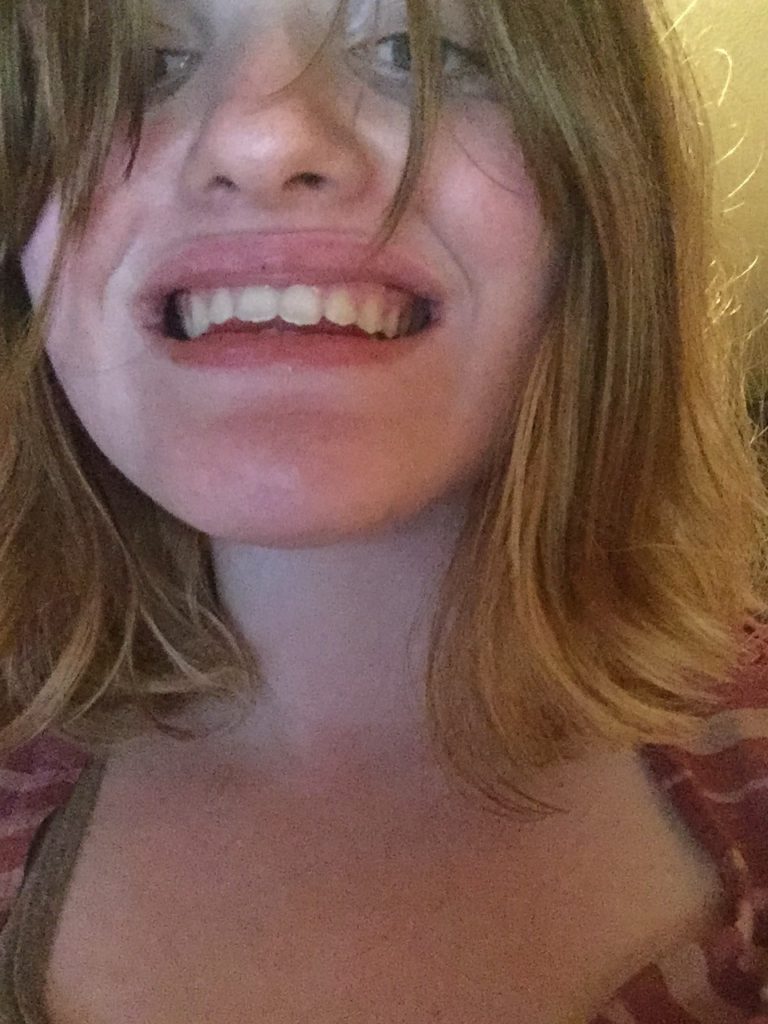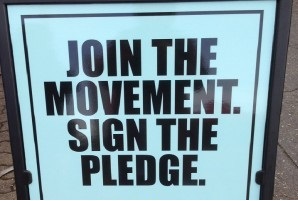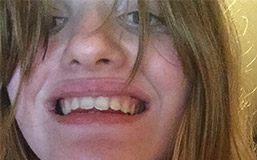 Born This Way Foundation is grounded in the belief that telling your story is a powerful tool of empowerment, growth, and healing. The Emotion Revolution – a joint initiative between the foundation and the Yale Center for Emotional Intelligence – shares this mission, encouraging young people around the country to tell their own story by taking an online survey. The results, which will be presented at the Emotion Revolution Summit this October, will be used to help understand how young people feel and how they want to feel, guiding the creation of kinder and braver schools and communities.
Born This Way Foundation is grounded in the belief that telling your story is a powerful tool of empowerment, growth, and healing. The Emotion Revolution – a joint initiative between the foundation and the Yale Center for Emotional Intelligence – shares this mission, encouraging young people around the country to tell their own story by taking an online survey. The results, which will be presented at the Emotion Revolution Summit this October, will be used to help understand how young people feel and how they want to feel, guiding the creation of kinder and braver schools and communities.
Born This Way Foundation has had the privilege of hearing stories from thousands of young people, such as Emma from Wisconsin. Emma has found great strength in sharing her experiences and now she is calling on high schoolers around the country to do the same. Here is her story;
My prognosis wasn’t grim, but it was clear from the beginning that I’d never walk. As for the rest, my parents played the waiting game. Much to their relief, cognitively, I was on the same level as any other child my age. One of my childhood therapists described me as “having a lot of spunk,” but I still had a long way to go.I was born three months premature and have spastic diplegia, a form of Cerebral Palsy. It’s an umbrella term that doesn’t have one specific definition. Rather, it is composed of multiple disorders that affect muscle movement. The cause? Brain damage.
When I was about three and a half, I underwent a six hour surgery to treat my hip dysplasia. The procedure left me in a cast for weeks. I remember, vividly, feeling lost and confused as I tried to navigate our home in Sioux Falls, South Dakota, while in the cast. It was actually my first childhood memory.
From then on, more surgeries – and more time in the hospital – followed. We eventually relocated to Wisconsin, where I still live, in order to be closer to my doctors. Over the years, I received additional diagnoses of scoliosis, neuropathy, and arthritis of the hips. With every surgery came difficult decisions for me and my parents. Fortunately, we received support from Child Life specialists to keep ourselves sane and cope with the hospital experience.
I formed deep bonds with my fellow patients. There were no cliques of popular girls, artsy kids, or nerds. Instead we would befriend each other according to the type of wheelchair we used or the location of that nasty scar fresh out of the OR. In other words, nothing was off limits. We were one, and we shared the deepest parts of ourselves that no one else wanted. It was my bubble that – as hard and as painful as it was – helped me connect with other children like myself.
The moment I would step outside of that and return to “normal,” I automatically felt like the odd one out who no one wanted to be friends with. It wasn’t that this made me sad necessarily; I just liked to keep to myself. I didn’t realize at the time how these experiences would affect me at the time, but around first grade, something changed. In retrospect, I understand that these physical experiences I endured also left mental scars, leading to a major and life-altering depression that would haunt me for several years. And that toll on my mental wellbeing, in turn, affected my physical health.
I absolutely hated the fact that I let an opportunity such as walking slip through my fingers and I hated myself even more for being such a burden to those around me. I was even convinced that my family would be better off without me. Although my faith kept me from ever attempting things such as self-harm, I was convinced that I was in a hole I’d never be able to dig myself out of.
I seemingly coasted through high school, often with a fake smile plastered on my face, still wondering why all of this had to happen. It wasn’t so much a pity party for myself as it was a voice in the back of my mind screaming, I’m so sorry I screwed up. I’m so sorry you have a disabled daughter. I’m so sorry I didn’t take the chances I was given. I’m so, so, sorry.
If there’s anything that got me through such difficult times, it was my faith and the realization that God had a purpose for my life. Even through depression, there was always a voice in the back of my mind telling me that, medically speaking, I shouldn’t even be here – so I must be here for a reason.
I made a commitment to myself to accept that I was born this way, and to love myself – not in spite of but because of the things that made me unique. It was a promise that I kept, even when things got rough. After I graduated high school, life got better. And when I was approved for a mobility service dog—Ole, a golden retriever—things were really looking up.
I truly believe I’m living proof that we all have something to live for and it does get better. These experiences have taught me that sharing your story is fundamental to accepting who you are. It allows you to showcase your bravery and become comfortable with who you are.
That’s why I’m challenging every young person to make their voice heard by joining the Emotion Revolution. Take the survey and share your own experiences – you were born this way, it’s time to stand up and tell the world.





 Born This Way Foundation is grounded in the belief that telling your story is a powerful tool of empowerment, growth, and healing.
Born This Way Foundation is grounded in the belief that telling your story is a powerful tool of empowerment, growth, and healing. 
